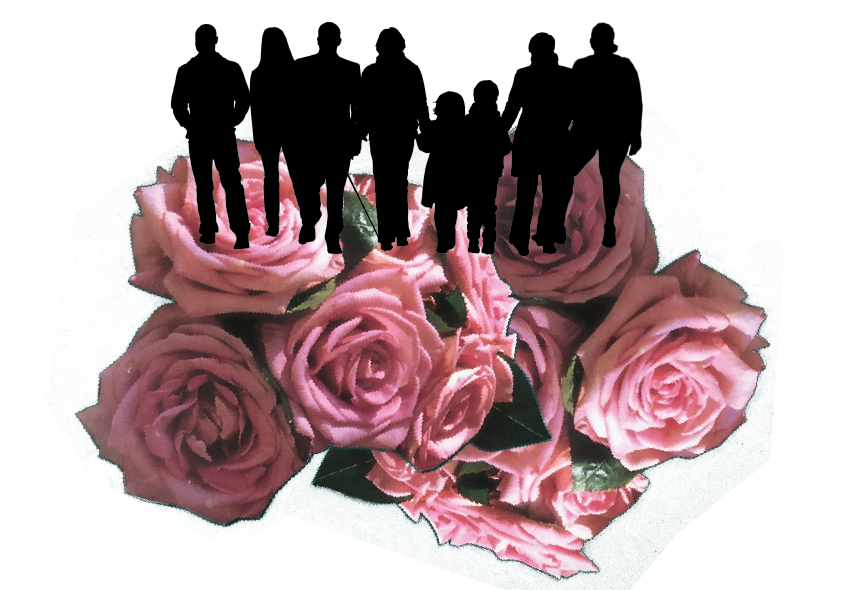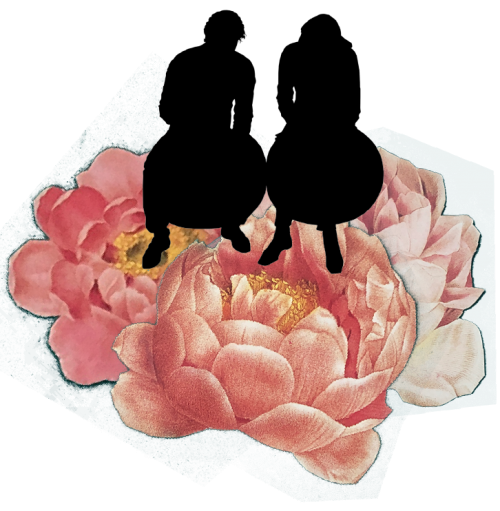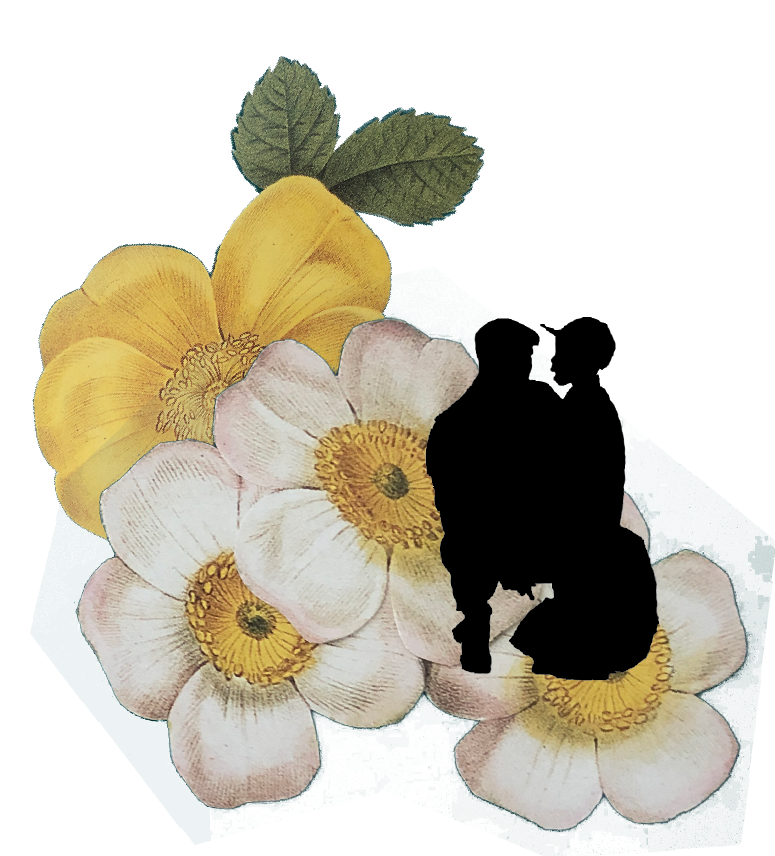The root is rotting: a love letter to the movement
Protest
Semi-trucks are blaring their horns as we march with the mass of bodies, turning the corner from Canal onto Broadway in SOHO. We are quickly swept into the irresistible current of sound and sweat, signs bobbing up and down above heads, chants syncopated against each other. The sun burns hot and the air is thick and wet. We’re here because Black lives matter.
I have never seen this place like this before. It reminds me of stories I heard about New York in the 70’s and 80’s when neighborhoods like SOHO where considered dangerous (when I say dangerous I mean there were lots of Brown and Black people around). The narrative about American cities over the last 50 years is tattooed into my mind: industrialization, the creation of the suburbs, White flight, and the concurrent demise of the “inner city” as they called it back then, because the White folks took all their money with them and didn’t look back.
But the people (when I say the people, I mean “the people, united, will never be defeated”) lived and loved and breathed life into the cities that the Whites abandoned. They build it anew with their own hands, with neighbors and “sweat equity.” Dangers and challenges remained but they lived, until the tides of real estate turned again. Developers (when I say developers I mean land speculators, conquistadors, colonizers) looked once more to where they could exploit value and make a profit, and what follows is the familiar story of gentrification within which we are enmeshed.
New York City often feels somewhat uninspiring to me because so much of it has been spoken for. The beauty of a city that has the markings of human hands on it has been replaced by sterile developments, things that are too beautiful, too smooth, too plastic to feel alive.
But on this day that we marched up Broadway things felt different. Since the pandemic officially took hold, those with money and means have left town. Perhaps they have gone to their second homes upstate or on Long Island. Maybe they have gone to stay with family out of state. Hell, some of them are probably in Ibiza or some other island wealthy people escape to which I wouldn’t know about. And maybe a few are still in their penthouses way up above our heads, living off of deliveries and workers that cannot afford not to keep working for them.
But regardless, it feels like the city is mostly us – us workers, us Brown and Black folks, us poor folks, us protesters, us renters, us artists, us Gen Z’ers and Millennials, us immigrants. It’s a small taste maybe of what the 70’s and 80’s felt like when the Whites flew out of town and left the people with the land.
Maybe I’m imagining it, but the apparent absence of obscenely wealthy people makes the city a place I love to be in. There are no fancy stores or expensive restaurants open. There is no where to go to show off your outfit and sip a cocktail as you try to look important and shiny. No networking and nothing non-essential to consume. And no one smelling of superiority because they have more money than you.
We are in charge. There are truck drivers and Uber drivers, grocery store clerks, and nurses. And then there are the folks hired, as of this week, to board up the windows of every high-end store on Broadway, to protect from the well-earned rage of these protests. It is a sight to behold: SOHO has been closed for weeks, but now it’s being covered over with wooden boards. But a handful of those boards have already been colored, painted, sprayed and tagged by the people (“united, will never be defeated”). Are we taking the city back?
Semi-truck drivers honk their horns to our songs or in long, defiant streams of sound. In one absolutely rapturous moment as we march up Broadway, we hear a rhythmic hammering sound. As we approach the sound, we see him, one of the men hired to board up a store, striking a board in the rhythm of our chants, then looking back at us with a bright, expectant gaze, sweat glistening against his face. His eyes say, “I may have to be here doing this job for my absentee boss, but you better fucking believe I am marching with you too.”

Love
The rapture of love, I have felt it in different times. Oftentimes on a dance floor, sometimes in the commitment to see and be with another in their vulnerability. But also, many many times in the streets, in protest. I am often so in love when I am protesting with others – our collective bodies merged as one, swirling through streets.
My parents first met at a party in post-revolutionary Iran, where those who had survived the violent upheaval drank, joked, and commiserated about the hell they had just been through. Somehow this story of them meeting in wild, revolutionary times and falling in love has shaped me deeply.
I feel safest in the river of your bodies washing down streets, held in the pulse of your steps. I can lose myself.
We are still tender and permeable. It has been quiet, and now it is loud. Can you hear the sounds of many hearts breaking?
I love being in the streets with you. Loving you, like this, bending towards a dream we all came into the world believing. It glimmers within us still.
My comforter lays rumpled on my bed in the new heat of the warming season. Sometimes when I am alone in this room I wonder, what’s the point of this. Of anything. Sometimes I forget how much I’m in love with you.
I want to pull bright rolls of ribbon from my doorstep through the streets to yours, so that the city becomes a chaotic mess of pinks, reds, greens and blues; lines to show you the way to me.
I want to dig a hole by the edge of the park with one of those excavators that’s been sleeping in Gowanus, and fill this hole with water for you to swim in all of the hot summer.
I want to plant thousands of fruit trees in this town to feed you apricots, apples and peaches every year. I want to put them there for you.
I want us to be together. I want to take care of you. I want you to take care of me.
Profit
There have been hundreds of thousands of people in the streets for more than two weeks now. And for all the protests I’ve been to before this moment, I’ve never seen so much care work happening. Water bottles, granola bars, sandwiches, hand sanitizer, and masks distributed every half block; people sage-smudging the paths of protesters. Jail support is plenty full with volunteers. Donations for bail funds are overflowing. Theatre lobbies are open during protest hours for rest, wifi and recharging. All of this because we want Black liberation like we want nothing else in the world. We want our Black folks to be free. We know that it is the only way for us all to be free.
Would any of this be possible without a pandemic that has halted the economy, closing schools and the majority of public establishments? And while essential workers continue to work and sustain our lives, many of the rest of us have had the time to be on the streets. This is what we would be doing in the absence of the forced coercion of a quotidian capitalist regime determining the structure of our days.
Working for someone else’s profit, also known as capitalism, is its own kind of slow violence to which most of us have become numb. We awaken in this forgiving, breathing world only to have our precious hours, days, weeks stolen by a normalized demand to work so someone else can benefit.
Can anybody hear me? Is anyone else feeling this?
But this unforgettable show of solidarity is what we would do everyday if we weren’t forced to labor for someone else’s profit: we would be gathering, dreaming up better worlds, healing the earth, singing, loving and feeding each other.
This is how good we are. We love being with each other. We love our world.
Work
One of the things I most clearly remember my father saying to me when I was young had to do with work. He said, “Raha, our nature as humans is to work. That is what we are here to do.” He spoke of work with such esteem, it made me want to be a worker; made it look like a prideful thing.
But the goodness in people that makes us want to work to support the world is exploited by a handful of people. These people don’t work themselves but they take advantage of the fact that most humans find meaning in doing good work. So here we are, trying to do something in the world that means something, that helps someone. And there they sit, getting rich over our good, open, loving hearts.
I dream of a world where everyone returns to their rightful place as a worker, an essential worker of some kind, contributing to the whole. We don’t need anyone stealing the fruits of our labor. We don’t need anyone making billions over death, toxicity and destruction, Jeff Bezos. We need no CEO’s and no slave masters.
In this world, we own our labour. We benefit directly from the work we do.
In this world, I would wake in the morning excited to be with you, to toil in ways that make your life and my life better.

Looting
There are many complicated ways to talk about very simple things. Like greed, hoarding, and theft. What are the origins of looting?
How about claiming a people’s land as your own, nearly exterminating them, and stealing all of their resources? How about looting populations of humans onto ships and then looting their labor and their children’s labor for generations? How about declaring war on far-off nations as a way to justify looting the oil under their feet so you can have more things? So yeah, looting.
But after all that looting, you might be scared that the people will catch wise and come for you. Much has been stolen so you have much to lose. Enter a security force to protect your stolen goods, also known as the military and the police, to “defend and protect” not the people but the literal centuries of stolen wealth hoarded by the owning classes.
“Money,
we make it,
before we see,
you take it” ¹
De Blasio instituted the New York City curfew because some folks were breaking into and “looting” stores. That is to say, he mobilized the power of police to protect the assumed private property of wealthy people and corporations when it looked like the people were stealing back.
I wonder if he and others like him are losing their shit because we’re in the streets demanding things be different. I wonder if they are trying to figure out how quickly they can send us back to work, and get us off the streets. Keep us preoccupied and exhausted by the prerogative of paying rent, food, utilities (working for your survival is not a choice. Let’s refer to it as wage slavery).
What I’m trying to say is capitalism is white supremacy.
Police
The police as we know them evolved from slave patrols: people hired by slaveowners to return fugitive enslaved peoples back to them. The police as foot soldiers to protect the looted goods, and this case human lives, claimed by the master.
But many who have been recruited into the police force or into the military are working class and poor folks looking for a way to survive in this violent economic system. They become pawns sent to die for the nation when they join the military. Or they are hazed and dehumanized in training to become police so that they can unfeelingly act in ways demanded by those who hire them. Cops are trained to see the world as one in which there is always a violent emergency; PTSD as workforce development. This isn’t going to work.
In a capitalist state, the police are the enforcement arm of the state. They state commands, the police enforce. A demand to defund and abolish the police means removing the armed buffer between the owning class and the people. No more police doing the master’s dirty work.
In the aggressive and violent arrests that were happening by the police on these streets, at times I was overcome with the sense that the wealthy and powerful had escaped the scene, leaving the police and the people on the streets to duke it out. The police armed to the helms with the power of the state behind them, but pawns all the same. And us, defending ourselves against their violence and intimidation, unleashed in the name of protecting the status quo of a white supremacist state.
What would happen without police? The charade of the wealthy hoarders would be quickly revealed and we wouldn’t tolerate it. Marie Antoinette comes to mind.
Racism
We look back at the founding of this nation with horror: genocide, ownership of humans as property, enforced labor for the profit of a few, also known as slavery.
And today? Black bodies murdered for existing, poverty criminalized, prison labor is legal and legitimatized slavery, and if none of those apply to you, then your life is spent working to produce goods for your master’s profit in exchange for a paltry wage with which you can eat and house yourself, while you delude yourself into thinking you’ve reached your human potential.
Coerced labor for someone else’s profit, also known as capitalism. They don’t technically own you, but you do have to devote 40 or more hours of your week making them rich.
Why haven’t we burned the slaveowner’s castle to the ground yet? Why has Amazon made 75 billion dollars in profits over the months of a global pandemic? (And if you’re wondering, Jeff Bezos’ net worth as of this writing is 153 billion US dollars, which, as far as I’m concerned, is just a really really really big number).
One of the reasons is the same reason we are in the streets. Because racism has divided us, the people, in ways that have made organizing against profiteering nearly impossible. Race is a social construct used to divide the working class so that it can be manipulated by those who seek to profit from us. An ancient strategy: divide and conquer.
By lording over the imaginary privilege of racial superiority over assumed racially inferior others, the person who becomes White can feel that he has at least his race going for him. This was the strategy used by the owning class settlers of what became the US to separate servants from slaves, and in keeping them divided, weaken their power to collectively organize. In the streets full of protest right now, we are refusing to believe this lie, this wedge between the working class: anti-black racism.
To refuse the myth of racial superiority and inferiority, to truly find solidarity with and in each other: we would be more powerful than their worst nightmares.

Dreams
Aurora Levins Morales says that any dream that appears to be in conflict with another dream is just too small of a dream.² In my dream, the police dissolve and all that remains are humans who have been hurt a great deal, who turn away from what they have been coerced into doing and towards the rest of us.
In my dream, all those enlisted in the military realize they have been taken advantage of by a violent state that has no interest in their well-being. They sabotage their posts. They cook meals and read to the children of the people whose lands they have been occupying. They rebuild the cities they have destroyed. They weep for themselves and for those that have been killed at their hands.
The root of this nation is rotten and the stench is getting so bad, only the most delusional will miss it. What I’m trying to say is, let’s get all the rot while we’re here picking at the soil. You can’t solve the problem of too many people in jails with more incarceration. You can’t weed out a few “bad” cops and leave the system be. We have been treating systemic problems as individual problems for far too long.The root is rotting. Pulling a few leaves off won’t get rid of the stench.
I don’t want to live in a world where Black lives merely matter. In my dream Black lives are treasured and Black joy runs the world. In my dream, this land becomes Native once more and we kneel on the earth, listening closely for answers.
Let’s stay hot and mad. Let’s build a world mirrored after the level of care out there in the streets. Let’s make taking care of each other our lifelong vocations.
¹ Marvin Gaye, “Inner City Blues (Make Me Wanna Holler”)
² From Medicine Stories: Essays for Radicals, by Aurora Levins Morales
Thank you:
To Efadul Huq, Angie Pittman, Dan Schwartz, Amanda Rouse and Stevie May for feedback and conversations that informed this writing. To Virginia Broyles for the flowers and design support.
Silhouette images courtesy of Nonscandinavia: http://www.nonscandinavia.com/